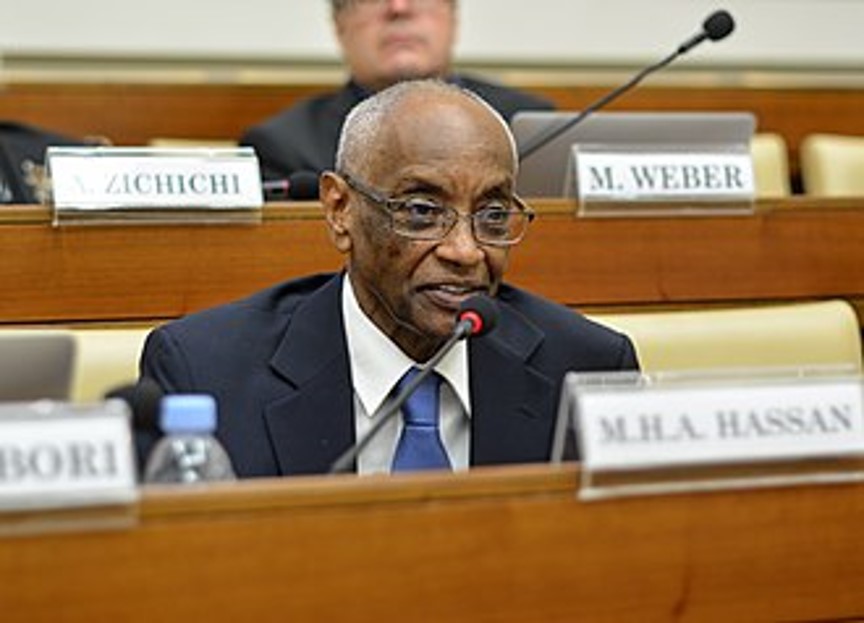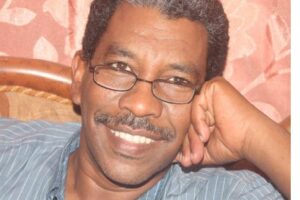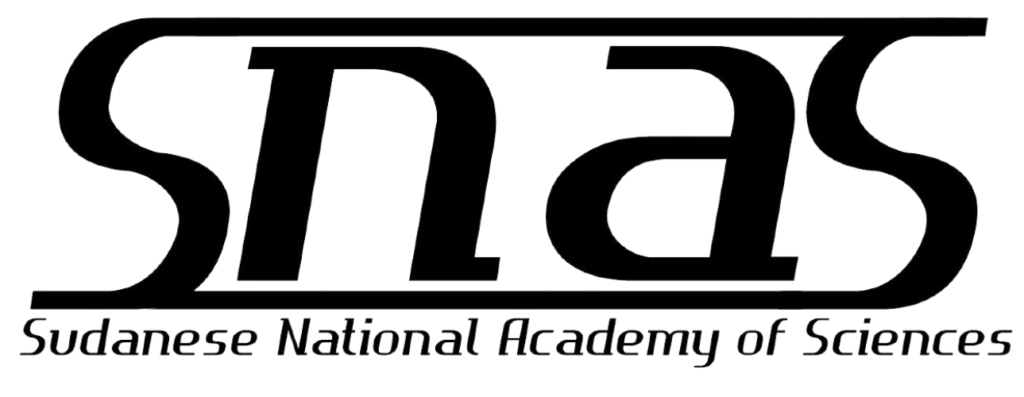
Letter from the president
- Date April 11, 2024

Promoting Science Education and Science Literacy in Sudan: the role of SNAS The Sudanese National Academy of Sciences (SNAS), of which I am privileged to be President, is an autonomous, independent, nongovernmental, nonpartisan, merit-based organization founded in 2005 by a group of eminent Sudanese scientists under the leadership of one of Sudan’s most distinguished scientists, Prof. Ahmad Mohamed El Hassan, who served as the Academy’s Founding President until last year.
SNAS aspires to be the apex merit-based organization in Sudan. It is dedicated to promoting excellence in research and education in STI, it is committed to applying research and technology t to sustainable development in the country. As such, the Academy is Sudan’s window onto the world’s merit-based academies of science. At the same time, it is the window that gives the world’s merit-based academies a view onto science and scientists in Sudan.
As a merit-based national academy of sciences, SNAS has a mission: to mobilize the most accomplished Sudanese scientists at home and in the diaspora to provide collective intellectual leadership for the betterment of Sudan.
SNAS has recently developed its first Strategic Plan, with seven clear strategic priorities. Important among these is: “promoting quality science education and scientific literacy”.
High-quality education is a stand-alone goal among the 17 United Nations Sustainable Development Goals – Goal Number 4. But it may be the most important goal of all. It is a component of every other goal in the 2030 Agenda for Sustainable Development. If we can succeed on Goal Number 4, that will directly help to insure global success on all of the other SDGs.
There is clear evidence that adopting an inquiry-based approach to teaching and learning substantially improves the quality of education, especially science and mathematics education.
SNAS is, therefore, pleased to partner with IAP, the Ministry of General Education, UNESCO, ISTIC and the Future University in promoting “Inquiry-Based Science Education (IBSE)” in Sudan through the organization of IBSE training workshops.
The first workshop was organized in 2014 and it involved over 150 school teachers and education experts from Sudan, Ethiopia and other Arab and African Countries. The workshop had a huge impact and it succeeded in training a number of trainers in IBSE and hands-on science education. The second similar training program will be held from 5 to 9 February 2017.
The next plan will be to initiate a number of workshops in different regions of Sudan to train the trainers in “inquiry-based science education (IBSE)”. SNAS will also
be ready to collaborate with the Ministry of General Education to organize such workshops as well as to introduce IBSE in a number of Schools as a pilot project.
SNAS also collaborated with the Ethiopian Academy of Sciences in an IAP-funded project aimed at developing models and tools for introducing IBSE in selected schools in Sudan and Ethiopia.
One important area we wish to explore with our partners, especially the Ministry of Education, is how to make use of recent advances in digital technologies to enhance our IBSE initiatives. That is: how to link digital education with IBSE methodologies.
With regards to higher education, our Academy plans to initiate collaboration with the Ministry of Higher Education and Scientific Research as well as relevant research universities to carry out an independent consensus study on the state of quality education and research in the Country.
Concerning our contribution to scientific literacy, we plan to initiate a series of high-level public lectures to be delivered by SNAS members and others on science-based issues of concern to society, including the critical role of science, technology and innovation in achieving the SDGs.
A more ambitious project we wish to explore and discuss with the Ministry of Education is to assist in carrying out a feasibility study for the establishment of an interactive science center or science museum in Sudan.
Science centers and science museums bring science to society and society to science. They promote hands-on, inquiry-based learning in an informal setting through a variety of interactive scientific exhibits.
Last November, UNESCO celebrated the World Science Day for Peace and Development under the theme: “Celebrating Science Centres and Science Museums”. Here is what UNESCO Director-General Irina Bokova said in her message for the event: “Science centres and museums play key roles in nurturing the curiosity of women and men, as living laboratories of creativity, catalysing research and solutions to help societies meet challenges. Science museums and centres are platforms for dialogue, understanding and resilience. They produce sparks of delight and wonder that inspire all visitors, regardless of age and background, in an experience that brings all women and men together around common values.”
There are about 2,500 such science centers around the world, visited by over 350 million
people annually. Unfortunately, very few of them are in Africa: 30 science centers in the whole continent – and 24 of them are in South Africa.
It is pleasing, however, to see that our neighboring country, Ethiopia, opened its first science museum in 2015 at the new campus of Addis Ababa Science and Technology University, largely with private donations. Perhaps this might inspire leading Universities in Sudan to consider a similar initiative in collaboration with appropriate government departments.
Professor Mohamed Hag Ali Hassan
President
February 2017
You may also like

Hassan Ahmed Elhag Baba

Professor Osman Ibrahim Osman Abdelkarim
تم تصميم هذا الاستبيان لتحديد معرفتك بالأنشطة الأكاديمية المفترسة بما في ذلك الناشرون المفترسون والمؤتمرات.يتكون هذا الاستبيان من 4 أقسام: القسم الأول هو لجمع بعض البيانات الديموغرافية. القسم الثاني حول ممارسات النشر سواء في المجلات أو في المؤتمرات. في هذا القسم ، سنستخدم المعلومات التي توفرها لنا لتقييم الوضع الحالي بين الأكاديميين والباحثين السودانيين و …
